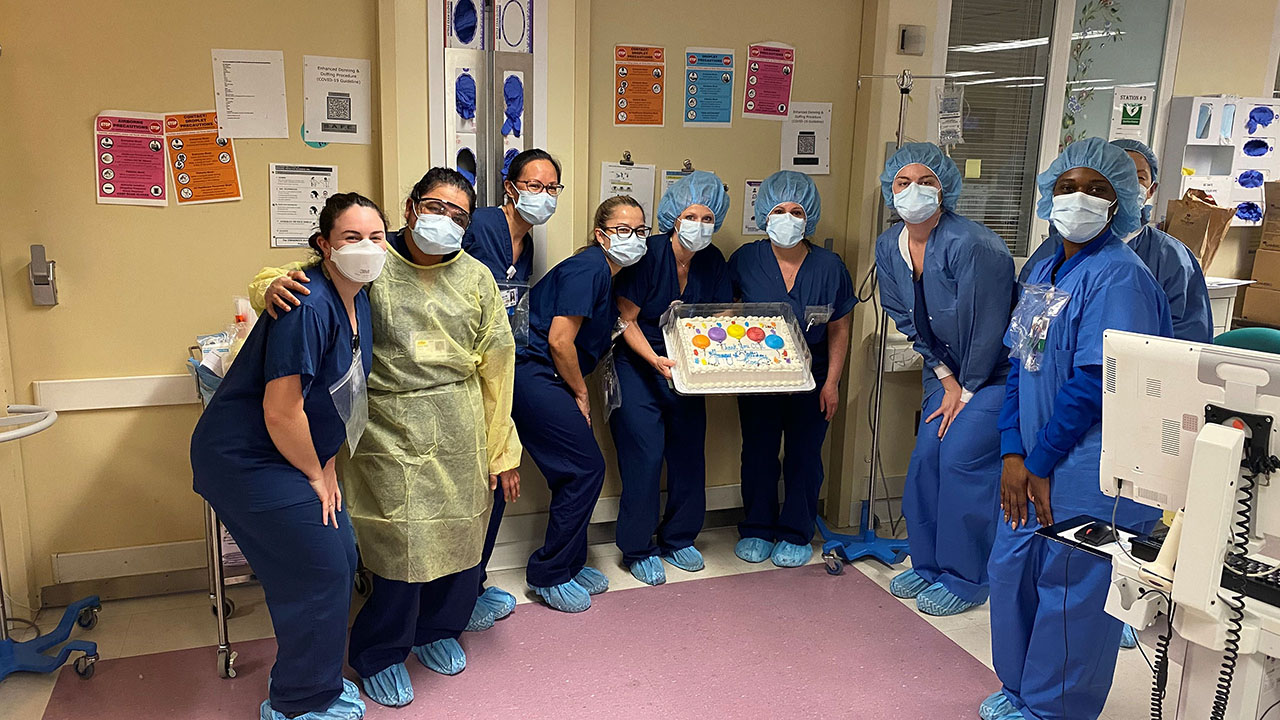Ledetsch Adjusts on the Fly, Helps Long Island Block Back COVID-19

Throughout the fall, The University of Scranton sports information office will be profiling former Royal student-athletes who are on the front lines in the battle against the spread of COVID-19. Read more, here.
The 2007 season for the then Meaghan Curtin was one for the record books on the defensive end for The University of Scranton volleyball team.
At the conclusion of the year, Curtin shattered the program record for digs, finishing the campaign with 811 to help Scranton win 25 games and advance to the very first Landmark Conference championship match. She also went on to earn All-Landmark Conference second-team honors, as well.
Now, in her professional life as the assistant nurse manager at Long Island Jewish Medical Center, the now Meghan Ledetsch is playing defense against a much stronger opponent -- COVID-19. Before taking her current position in July, Ledetsch served as a nurse in the Cardiac ICU at North Shore University Hospital in Manhasset, New York for five years, as challenging of a position as there is in the entire hospital.
“As one of the biggest Heart Center's on Long Island, I took care of the sickest of the sick cardiac patients,” Ledetsch said. “This includes but is not limited to carcinogenic shock, septic shock, end-stage heart failure, heart attacks, LVADS, heart transplants, arrhythmia's, pulmonary diseases, end-stage renal disease, etc. Sometimes these patients were so sick they needed to have two nurses instead of the 1-nurse to 2-patient ratio we typically have.”
But, even working in a high-pressure unit such as the Cardiac ICU could not prepare Ledetsch for what was to come this past spring. Once the pandemic reared its vicious head into the New York metro area in March, Ledetsch’s Cardiac ICU unit became a full-blown COVID ICU.
“Over the past few months, words cannot describe what my hospital has seen or gone through,” she said. “Myself and my colleagues were exposed to a whole different type of nursing.”






